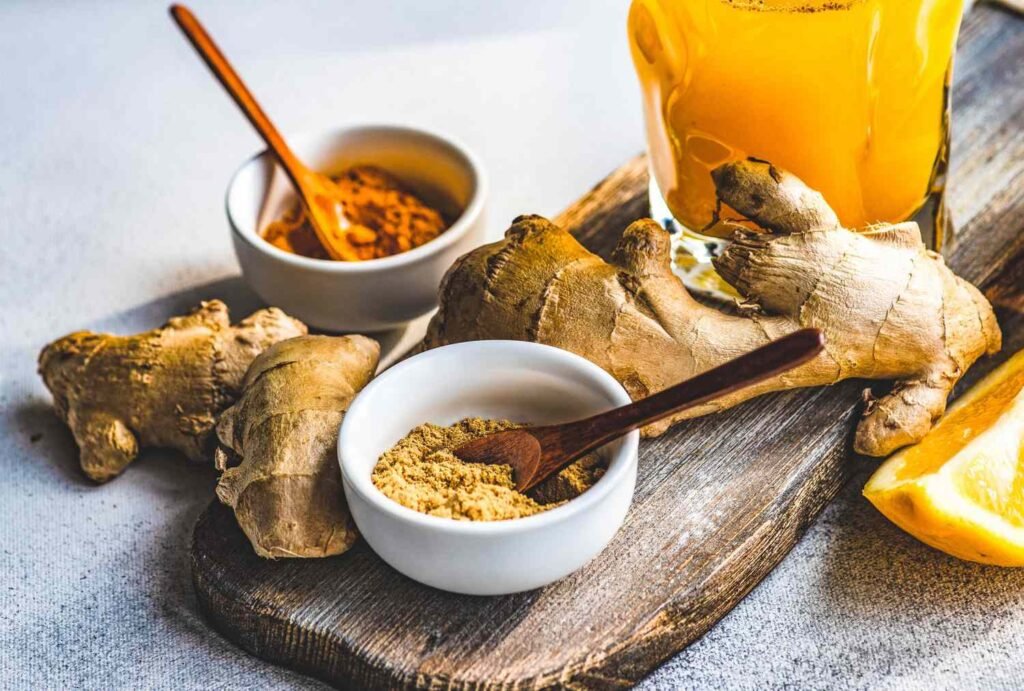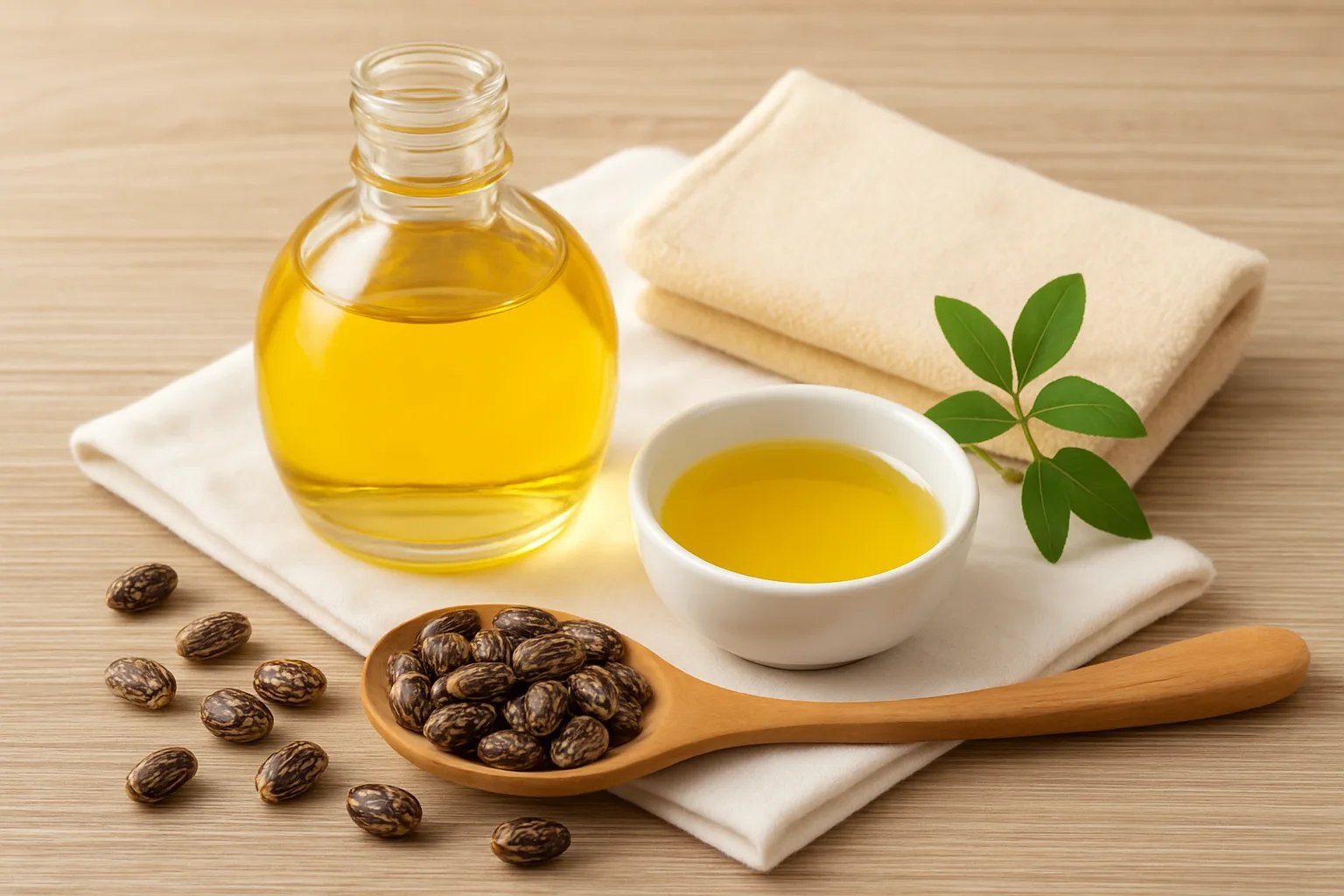
Inflammation is a natural response by the body to protect itself from injury, infection, or irritation. While acute inflammation serves a protective function, chronic inflammation can lead to various health problems, including arthritis, heart disease, and even cancer. In the pursuit of natural remedies for managing inflammation, turmeric and ginger have long been regarded as powerful anti-inflammatory agents. These two spices, often found in kitchens around the world, have earned their place not just for their culinary benefits but also for their remarkable medicinal properties. In this article, we will explore the healing potential of turmeric and ginger, focusing on their roles in reducing inflammation and supporting overall health.
Turmeric, with its active compound curcumin, is often hailed for its ability to combat inflammation in the body. But it’s not just turmeric that’s a star in the world of natural remedies for inflammation; ginger, known for its compound gingerol, also offers powerful anti-inflammatory effects. Together, these two natural ingredients work synergistically to reduce pain, soothe irritated tissues, and provide relief from a variety of inflammatory conditions. Whether you’re interested in using haldi powder (turmeric powder) or adrak (ginger) in your diet or as part of a supplement regimen, understanding how these ingredients work and how they can be incorporated into your daily routine is key to harnessing their full potential.
This article aims to provide a comprehensive look at turmeric and ginger as natural remedies for inflammation, offering insights into their specific benefits, how to use them effectively, and the scientific evidence supporting their efficacy. From understanding ginger health benefits to exploring the relationship between turmeric and pregnancy, we’ll delve into the many ways these spices can support your well-being. Whether you’re looking for a natural way to ease joint pain, improve digestion, or even manage nausea, turmeric and ginger may hold the answers you’ve been searching for.
The Anti-Inflammatory Powers of Turmeric
Turmeric, a golden-yellow spice derived from the root of the Curcuma longa plant, has been used in traditional medicine for centuries. Its most well-known active ingredient, curcumin, is responsible for many of its health benefits, particularly its powerful anti-inflammatory properties. Research has shown that curcumin inhibits the activity of pro-inflammatory molecules such as cytokines and enzymes, effectively reducing inflammation in the body. This makes turmeric an excellent remedy for conditions like arthritis, inflammatory bowel disease, and even cardiovascular disease.
Turmeric what is it good for extends beyond just inflammation. It also supports joint health by improving mobility and reducing stiffness, which is why it’s commonly recommended for people suffering from osteoarthritis and rheumatoid arthritis. Studies have shown that turmeric can be just as effective as nonsteroidal anti-inflammatory drugs (NSAIDs), but without the harmful side effects that come with prolonged use of these medications. For those looking to reduce their dependence on over-the-counter pain relievers, incorporating turmeric into your daily routine could provide a natural alternative.
Moreover, turmeric has been linked to enhanced brain health. Chronic inflammation in the brain has been associated with cognitive decline and diseases like Alzheimer’s. Turmeric’s ability to cross the blood-brain barrier and reduce inflammation in the brain makes it a potential protective agent against neurodegenerative conditions. To get the most out of turmeric, however, it’s essential to consume it with a fat source, such as coconut oil, and black pepper, which contains piperine, a compound that enhances the bioavailability of curcumin by up to 2,000%.
Ginger’s Role in Reducing Inflammation
Just like turmeric, ginger is another zingiber-related root with a long history of use in traditional medicine. Gingerol, the main bioactive compound in ginger, provides its distinctive anti-inflammatory benefits. Ginger is known for its ability to inhibit pro-inflammatory cytokines and enzymes, making it highly effective in reducing pain and inflammation in the body. One of the most significant health benefits of ginger is its role in ginger health when it comes to managing conditions like osteoarthritis, where inflammation in the joints causes pain and discomfort.
When it comes to ginger for pregnancy, this root is widely used to alleviate nausea and vomiting, two common symptoms associated with morning sickness. However, ginger good for pregnancy does not just stop there. Some studies suggest that it can also help reduce inflammation in the body, which is important for expectant mothers who are looking to maintain a healthy pregnancy. Though it’s always important to consult a healthcare provider before using ginger during pregnancy, it has been shown to be generally safe when consumed in moderate amounts.
Additionally, ginger has been praised for its digestive benefits. Chronic inflammation in the digestive tract is a hallmark of conditions like irritable bowel syndrome (IBS) and inflammatory bowel disease (IBD), which can cause symptoms like bloating, abdominal pain, and diarrhea. Ginger can soothe the digestive system, reduce inflammation, and even stimulate the production of digestive enzymes, promoting better overall digestion.
Combining Turmeric and Ginger for Maximum Effect
While both turmeric and ginger are potent anti-inflammatory agents on their own, combining them can provide enhanced benefits. The ginger spice and haldi powder complement each other in reducing inflammation, improving digestion, and promoting overall wellness. When consumed together, the combination of curcumin and gingerol targets inflammation in different ways, creating a synergistic effect that can lead to more significant health improvements.
For instance, ginger and lemongrass is a popular pairing in traditional medicine. Lemongrass contains antioxidants and essential oils that enhance the anti-inflammatory properties of both turmeric and ginger. When used together in teas or as part of a cooking recipe, these ingredients can work together to promote a calming effect on the body, alleviating the pain associated with chronic inflammation. Many ginger people (individuals from cultures that rely heavily on ginger in their diets) use this combination to treat everything from arthritis to digestive issues.
Another benefit of combining these two spices is their ability to aid in the body’s detoxification process. Both turmeric and ginger help the liver by stimulating the production of bile, which is crucial for breaking down fats and removing toxins from the body. This natural detoxification process can improve overall health, enhance digestion, and reduce the burden of inflammation on various organ systems.
Practical Tips for Using Turmeric and Ginger
Incorporating ginger use and turmeric into your daily routine doesn’t have to be complicated. There are several ways to add these powerful spices to your diet:
- Turmeric Tea: One of the simplest ways to enjoy the benefits of turmeric is by making a turmeric tea. Simply boil water, add a teaspoon of turmeric, and a pinch of black pepper. You can also add honey crystals to sweeten it.
- Ginger and Honey Crystals: A soothing remedy for sore throats or nausea is a ginger and honey mixture. Simply grate fresh ginger, steep it in hot water, and add a spoonful of honey to enhance the flavor and boost its health benefits.
- Smoothies: Add a teaspoon of turmeric and a slice of ginger root to your daily smoothie for an anti-inflammatory boost. Pair it with fruits like pineapple, which contains bromelain, another anti-inflammatory compound.
- Cooking: Turmeric and ginger are staples in many cuisines, especially in Asian dishes. Incorporate them into soups, curries, and stir-fries for a natural flavor and a dose of anti-inflammatory goodness.
- Supplements: For those who prefer a more concentrated form, turmeric and ginger supplements are available. However, it’s essential to choose high-quality products that contain sufficient amounts of curcumin and gingerol to be effective.
Conclusion
The healing powers of turmeric and ginger as natural remedies for inflammation are backed by centuries of traditional use and a growing body of scientific evidence. These two spices, with their potent compounds like curcumin and gingerol, can help reduce chronic inflammation, alleviate pain, and improve overall health. Whether you’re using ginger for pregnancy, seeking relief from arthritis, or simply aiming to boost your immune system, turmeric and ginger are accessible and effective solutions.
By incorporating these two powerful ingredients into your daily diet, you can enjoy a wide range of health benefits, from improved digestion to reduced inflammation and enhanced brain health. Remember that the best results come from consistency and proper use. Whether you choose to drink turmeric tea, add fresh ginger to your meals, or even grow your own ginger root, the potential benefits of these spices are immense.
As with any natural remedy, it’s important to consult with a healthcare provider, especially if you have underlying health conditions or are pregnant. By combining the wisdom of tradition with modern scientific research, turmeric and ginger offer a powerful, natural way to fight inflammation and promote better health.









